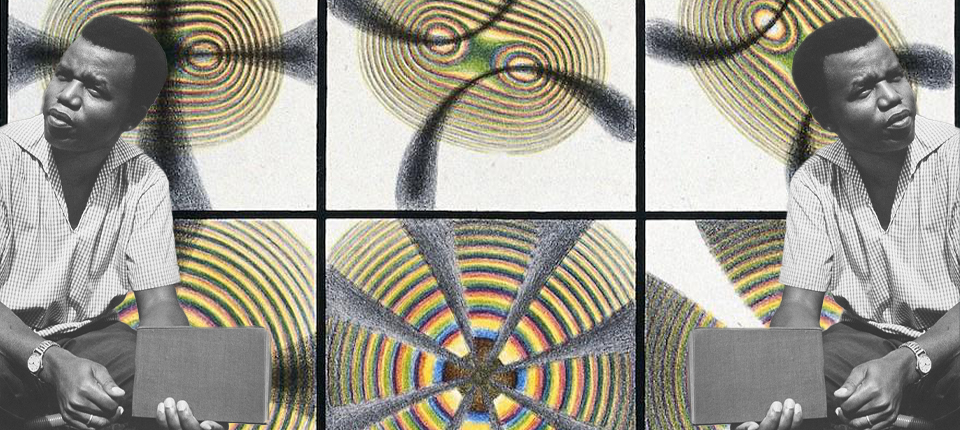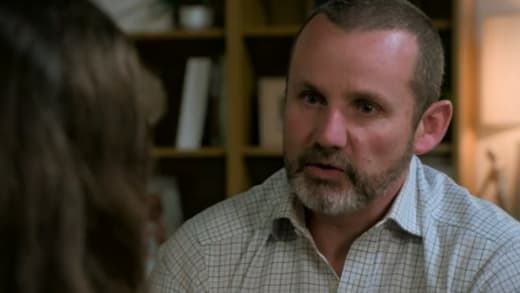
Raise the Bar is Fortune’s advice column written by business strategist and resilience educator Komal Minhas. Are you grappling with a workplace issue that’s getting in the way of you achieving your career goals? Komal is here to help—and she’ll be tapping top experts for their best advice along the way.
Dear Komal,
I have recently been diagnosed with a devastating muscle condition that will be with me for the rest of my life. I am refocusing and re-envisioning my life right now because all my goals need to fit in with my new condition and life. I would like to take out some dreams and dust them off, but it all feels like everything just blew away in a volcanic eruption. How can I find my direction after a hit like this?
– Making Sense of Things
Dear Making Sense of Things,
I’m sorry this is happening.
Having an unexpected diagnosis or life event that changes everything is wildly destabilizing. You are in the midst of the chaos and the upheaval, and there are very few things that I can say to make things better. So often people try to bring up the silver linings immediately, or placate our pain when all we need is someone to bear witness to our experience. As a cancer survivor and someone living with chronic illnesses, I see you, and I know your pain intimately. I also understand your ability to still dream in the face of your diagnosis is critical to you.
Here are some steps you can consider as you reconcile this diagnosis, and begin to dream again.
Give yourself time to grieve
In the early days of my cancer diagnosis, my career goals became my lifeline. But ultimately, trying to nurture my company and my health simultaneously led to burnout and even more sickness. I didn’t give myself the opportunity to grieve and begin processing this massive life change. Instead I pushed myself past my new limits until I crashed.
You might not feel ready to fully acknowledge the severity of your diagnosis and how it’s going to change your life—it may feel unsafe or unhelpful to do so. But I encourage you to find ways to allow some of these feelings to surface. You might want to find a therapist with experience supporting clients with similar diagnoses, lean on a trusted friend, mentor, or coach to connect with regularly to make sense of the changes, or schedule an hour weekly to let yourself fall apart.
Whatever that looks like for you, make it a priority. The grief will come whether we allow it to or not. It always finds its way through, so create spaces where you can hold it with intention and the respect it deserves.
Turn to the experiences of others
As we grapple with a forced change to our identity, looking at the stories of how others navigated similar circumstances can be a guide for the road ahead. Look into podcasts, articles, books, groups, TikTok videos, and more by creators in your new community of fellow chronic illness baddies. This can help you find yourself in others’ stories as well as get advice on how to navigate these new challenges (as well as potentially help you decide what not to do).
“In my community, we all have chronic illnesses and we remind each other that they’re not our entire identity,” says Nitika Chopra, the founder of Chronicon, an online community and annual live event for those facing chronic illnesses. By learning about the journeys of others, Chopra says, you also get to see examples of people living full and whole lives inclusive of their illness.
Living vicariously through others’ experiences can help build your self-efficacy—your belief in yourself that you can do hard things. Leaning into these stories can help you rebuild your confidence and self-belief, and help you decide on your next steps and the dreams that may still be possible.
Reset your baseline expectations for yourself through this immersion and source the seeds for your future dreams and impact.
Learn about your rights at work and supports available to you
What you’re going through isn’t happening in a vacuum. Your dreams matter and they exist within a society and systems that do not support the chronically ill very well. The most marginalized in society are often the most resilient out of necessity! So this is your reminder that with marginalization comes the weight of navigating legislation like the American Disability Act, applying for workplace accommodations, and often being the first in certain structures to have to do so. Most institutions get it wrong, and still we have to persist.
Hold your dreams close, lean on the supports that exist, and equip yourself as best you can with the information to advocate for your needs and rights at each turn.
Plan your dream integration session
It’s time to integrate the dreams you’ve collected from the stories of others and your dreams from before this diagnosis. This is going to be an uncomfortable process—but ultimately it should be powerful. Grief will likely rear its head as you surrender some of the things that may not be possible anymore, and joy may enter the conversation when you realize how aligned some of your new dreams truly are. Dream big, and at the same time create a manageable plan for your day to day.
“Make a list of things that you can do, even when you have to be in bed, or when your chronic illness is in a flare,” suggests Chopra. Having goals and dreams for the harder times is a useful tool to continue to feel forward motion and action even when very little is doable. When I’m in a flare up, some of my goals are simple, like choosing a really good show to watch and updating work-related spreadsheets that require very little brain and body power. That’s a win I feel good about on my bad days.
Let yourself make goals and plans that are going to help you feel as good as possible on this rollercoaster.
Be kind
I hear this quote from Ian Maclaren often: “Be kind, for everyone you meet is fighting a hard battle.” In this instance, you are the one you need to be kind to! Comparing your life to what it was before, and your abilities to what they once were is a recipe for a lot of pain. You can focus on your health and well-being, and still pursue the dreams you’ve outlined for yourself, but it’s crucial to be good to yourself along the way.
Remember: In one of your hardest moments, your inclination was to keep dreaming and to keep believing in yourself and your potential.
































![‘911 Lone Star’ Season 5 Episode 8: Tommy’s Cancer Setback [VIDEO] ‘911 Lone Star’ Season 5 Episode 8: Tommy’s Cancer Setback [VIDEO]](https://tvline.com/wp-content/uploads/2024/11/911-lone-star-season-5-episode-8-tommy-cancer.jpg?w=650)
























